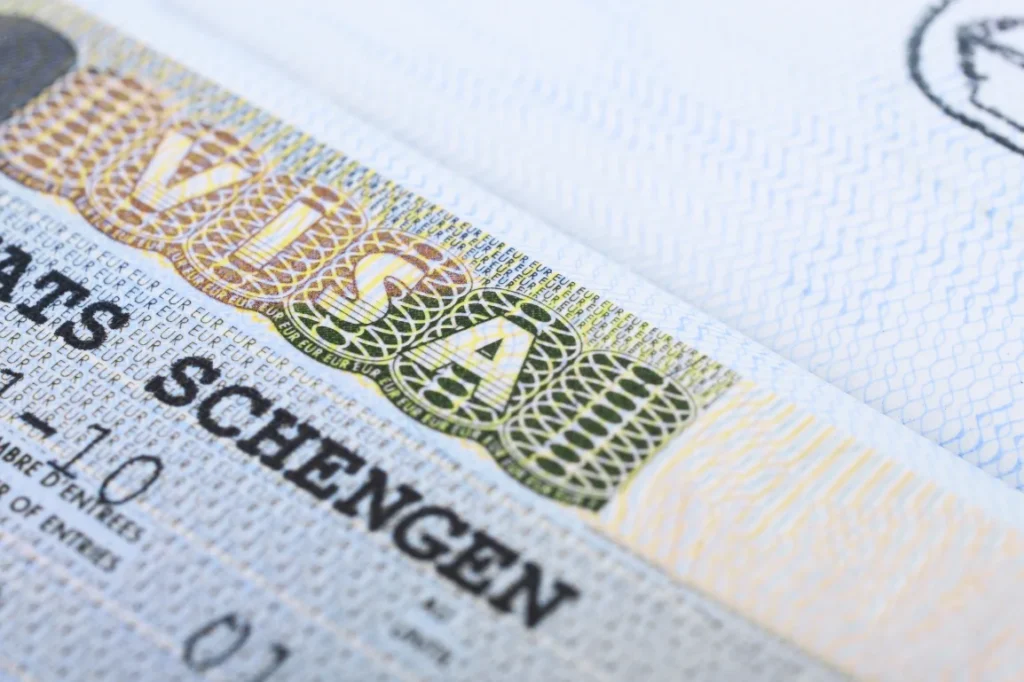Home > Getting a Schengen Visa with an H-1B Visa in the US
Getting a Schengen Visa with an H-1B Visa in the US
For travelers planning to visit Europe, regardless of the reason, certain requirements need to be met.
Different travelers have to meet different requirements depending on a multitude of factors, like which country issued your passport and the reason you're heading abroad.
Figuring out which Schengen visa requirements apply to you, what you need to apply for, and the process you need to undertake can seem a little bit convoluted, especially if you're a first-time applicant.
If you're an H-1B or visa holder, you may wonder if you can apply for a Schengen visa in the US, or which requirements apply to you. We're going to answer all of that and more to give you the information you need.
Note: Not all H-1B visa holders will need to apply for a Schengen visa. Whether or not you need to depends on your nationality (which country issued your passport).
For example, Canadian and Mexican passport holders generally do not need to apply for a Schengen visa for short trips (fewer than 90 days) to the Schengen area, whether they hold an H-1B visa or not.
This is because whether or not you need a Schengen visa isn't dependent on what type of visa you hold for the US. It's dependent on your nationality.

Traveling to Europe with an H-1B visa
According to the European Union's official website, you must apply for a Schengen visa in the country where you are a legal resident (source).
With this in mind, H-1B visa holders can apply for a Schengen visa in the US, so long as they hold legal resident status.
That said, always refer to the official embassy website of your European destination when it comes to whether or not you need a visa, which one you need, and where you need to apply.
The application process
It's important to understand that the Schengen visa application is entirely different than your H-1B visa application and process in the States.
If you're a resident and can apply in the States, the process mirrors how you'd apply for a Schengen visa in your home country.
This is because the Schengen visa application requirements apply worldwide, and whether or not they apply to you specifically depends on your nationality (the country that issues your passport).
- Know your destination. There are 29 Schengen countries, and for some, the application process starts online (such as for France or Germany).
- Working off of an official checklist given to you by the Embassy/visa application center for your destination, prepare multiple documents and files for your application. Required documents include things like Schengen travel insurance, proof of funds, accommodations, and more. You may be required to submit additional documentation surrounding your legal residence status, such as an I-94 form. The official Checklist you receive will tell you exactly which documents you need to provide.
- Book an appointment for an in-person visa application appointment. This will take place at a partnering visa application center or embassy/consulate in the States. The location depends on where your legal address is and which country you're applying to.
- Bring all of your documents with you to your visa appointment. At this appointment, you'll submit your application if it is deemed complete.
After you've completed the visa process, you'll need to wait a few days for processing (typically about 15 days). Once a decision has been made, your passport will be returned to you. If your visa has been approved, it will be stamped inside.

Where the appointment takes place
As said above, where your appointment takes place depends on where your legal address is and which country you're applying to.
Most visa application centers and embassies are located in major US cities like DC, New York, and Los Angeles.
In most cases, you'll have to go to the visa application center or embassy/consulate that serves your region, even if another option is geographically closer.
When you book your appointment, you'll be able to see your options.
Likelihood of approval
While it would be nice to know what your chances of approval are ahead of time, it really isn't something you can know or that someone can tell you.
For instance, visa applicant center attendants can't even tell you your odds or whether your application is competitive. They do not know and have no influence over or knowledge about whether or not a visa will be approved or denied.
It can be helpful to realize that approval depends on several factors, and rates of approval are fluid, meaning they can and do change regularly.
The best thing that you can do is follow the instructions and have a strong visa application that meets all Schengen visa requirements. Even still, only the embassy can make the final decision.
